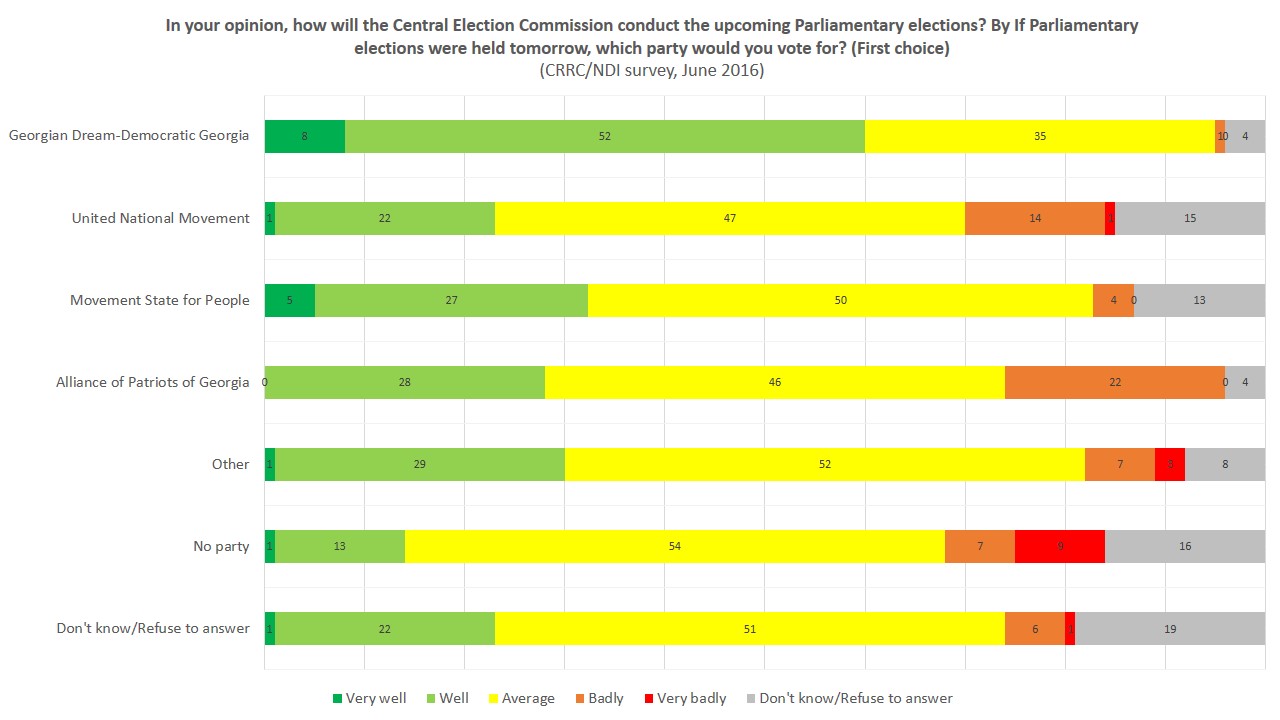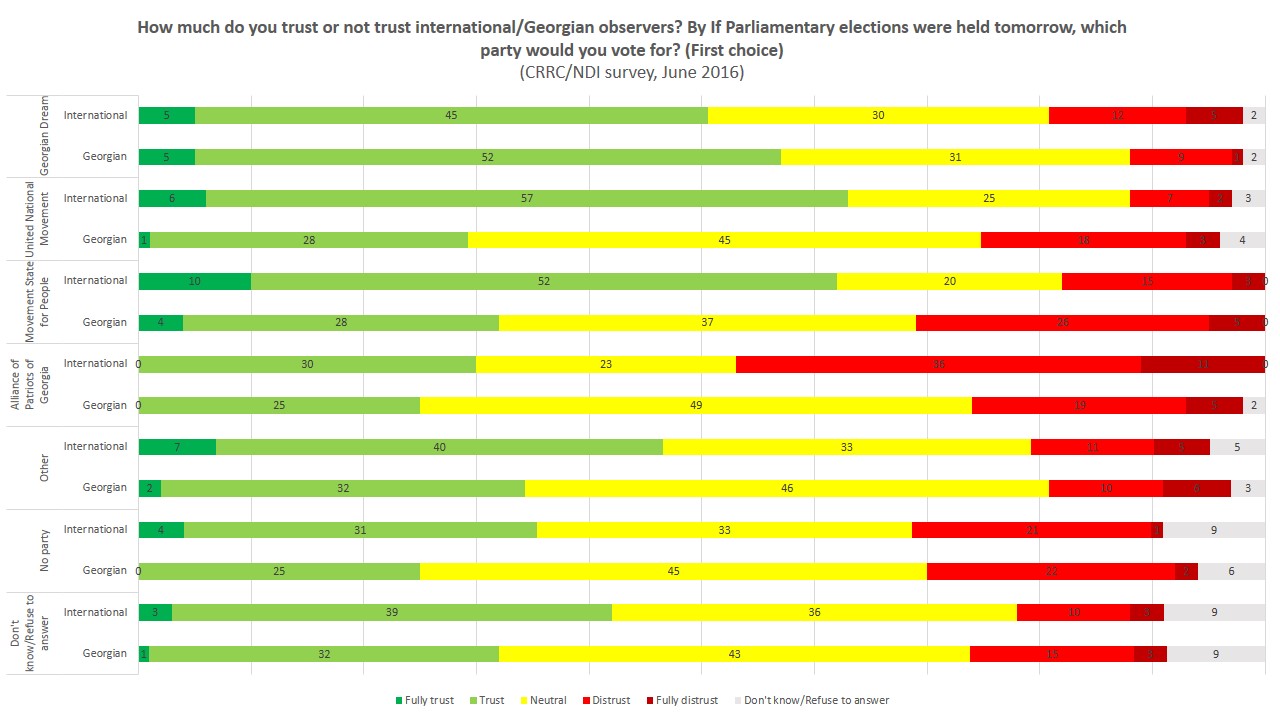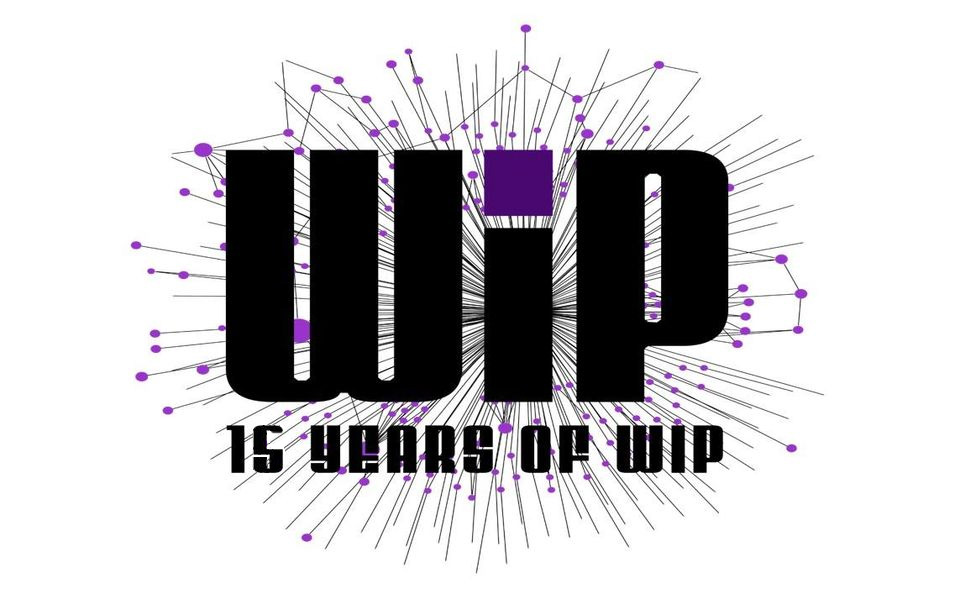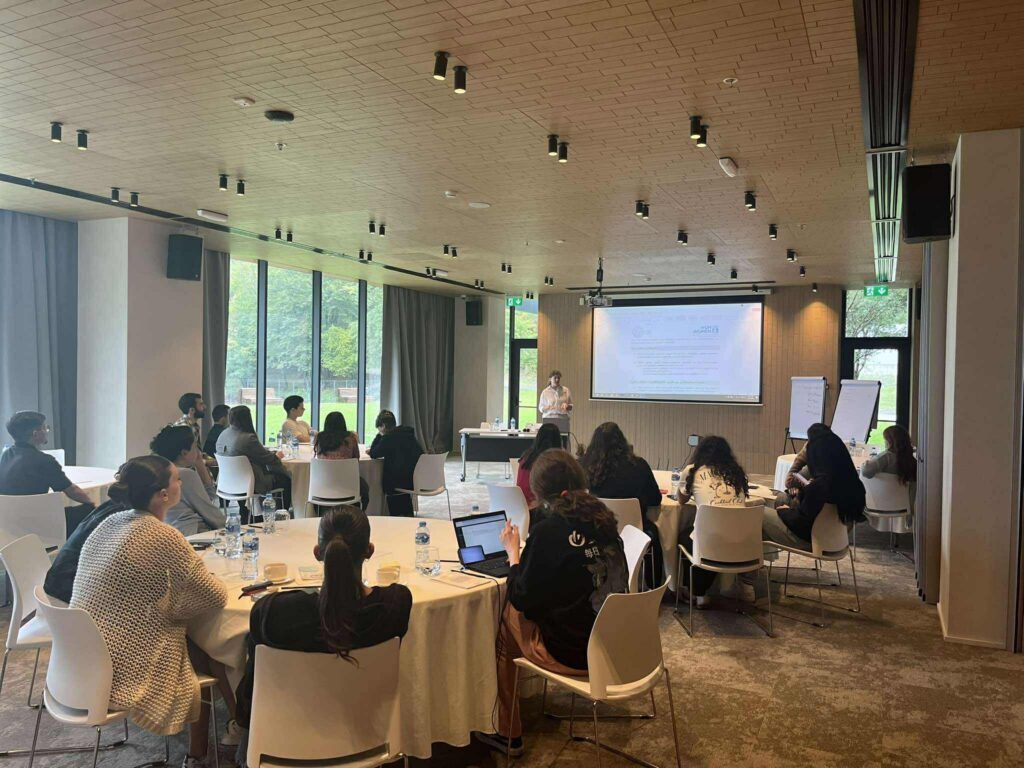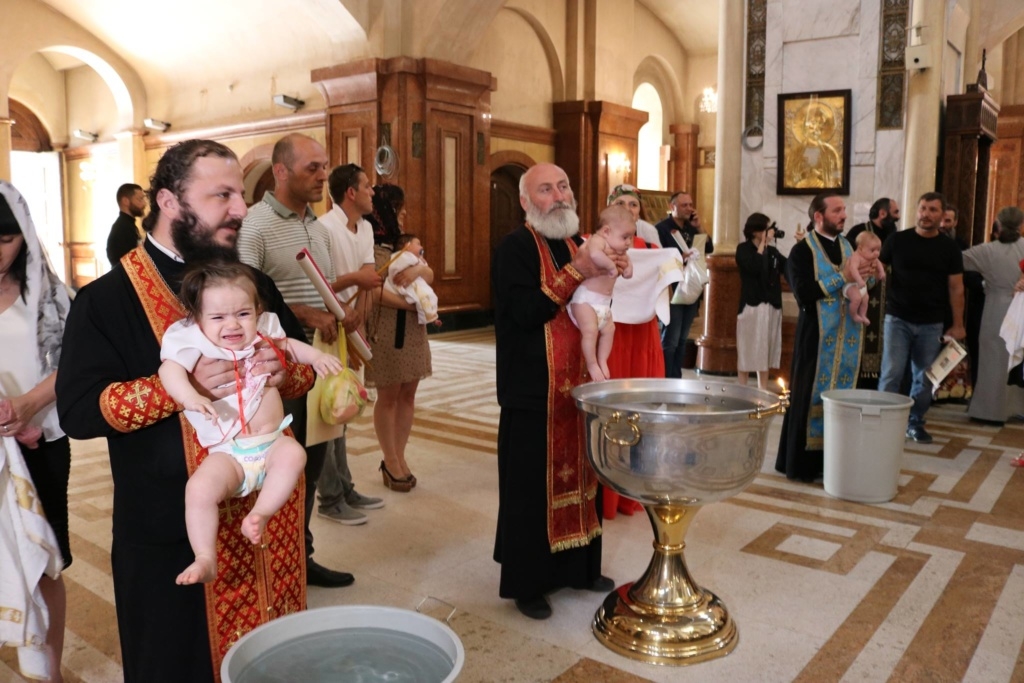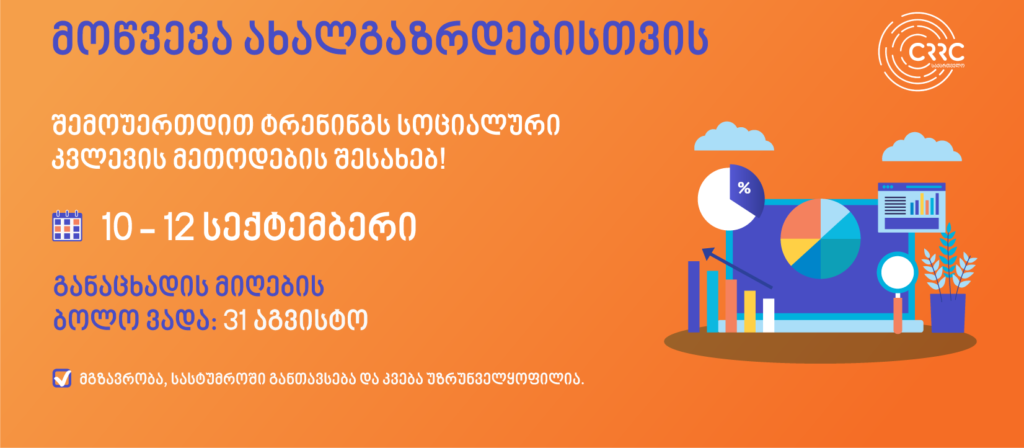The June 2016 CRRC/NDI Public attitudes in Georgia survey, conducted three months before the Parliamentary elections, provides interesting information about trust in the Central Election Commission (CEC) and election observers, both local and international.
The CEC’s role in conducting elections in Georgia has been subject to contentious political debates about the organization’s impartiality. The survey data demonstrates the public’s lack of trust in the institution. In June, only 29% of the population of Georgia believed that the CEC would conduct parliamentary elections “well” or “very well”. In contrast to this general opinion, a majority (60%) of likely voters for the incumbent Georgian Dream party believed the same, while less than a third of likely voters for the two other parties that won seats in parliament (the United National Movement and Alliance of Patriots of Georgia) believed that the CEC would conduct the elections “well” or “very well”.
Note: The shares of those reporting they would vote for either Movement State for People or Alliance of Patriots of Georgia was very small (respectively, 4% and 3%), and the results for the supporters of these two parties are only indicative.
Unsurprisingly, trust towards Georgian and international observers also differs. Overall, the population of Georgia tends to trust international observers more than Georgian observers. Forty eight percent report either “fully trusting” or “trusting” international observers, compared to 34% who report trust in Georgian observers. There are even wider gaps in trust in these two groups of observers depending on party support: while 63% of United National Movement supporters report either “fully trusting” or “trusting” international observers, only 29% “fully trust” or “trust” Georgian observers.
Note: The shares of those reporting they would vote for either Movement State for People or Alliance of Patriots of Georgia was very small (respectively, 4% and 3%), and the results for the supporters of these two parties are only indicative.
To explore the CRRC/NDI June 2016 survey findings, visit CRRC’s Online Data Analysis portal. On the topic of anomalies in the voting process, CRRC-Georgia recently conducted the Detecting Election Fraud through Data Analysis (DEFDA) project regarding the 2016 parliamentary elections. Preliminary findings can be found here. CRRC-Georgia has also previously published blog posts on the electoral process in Georgia, including on government spending before elections and public opinion shifts before and after elections.
